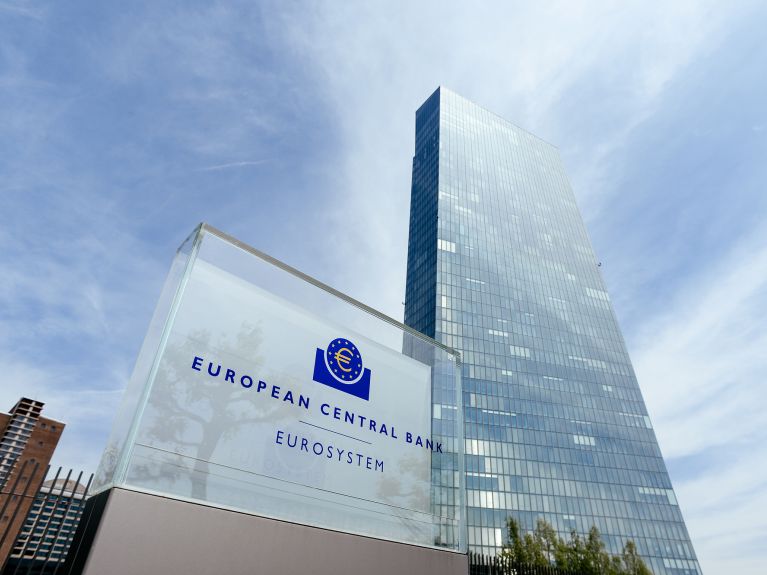„Europe has made impressive progress“
Europa is now better prepared against financial crises, says Italian economist Ester Faia, professor at Goethe-Universität Frankfurt. But what about Brexit?

Prof. Faia, how do you see the economic situation in Europe at the moment?
Europe has been on a recovery path after a deep crisis. Some countries like Germany recovered earlier, others such as Italy need more time. Definitely more reforms in those countries have to be done. However, regaining political stability is even more important. Germany for example hasn’t had many reforms over the last years, but there was stability and the reforms done before were correctly implemented. Italy on the other hand has undergone a continuous, hectic production of new reforms and none of them was really implemented.
So quite a few countries still have homework to do?
Yes, but this is normal. Look at the United States: They also have states that face problems. It is rather common for currency unions to undergo periods of growth associated with crises. The important thing is that the EU is creating institutions that are able to deal with problems or crises once they materialize.
For more European integration, all countries need to accept some regulations that go beyond what we have now.
So overall, is Europe better prepared against new financial crises?
Yes, because there have been advancements in institutions as well as steps towards a banking union and a capital market. The five presidents’ plan also advanced the idea of a labour and a fiscal union. Europe did impressive progress in a short time.
Do you think we will see more economic integration in the EU in the next years?
I think it is inevitable. But it means that all countries need to accept some regulations that go beyond what they have now.
How does Brexit fit into this picture?
If the UK wishes to leave, of course it has the right to. I think to the vast majority in Europe it sounds like a terribly bad idea. And it doesn’t look like at the moment the UK has laid down a coherent plan for the future.
Brexit is a risky bet and the consequences will be uncontrolled.
How will Brexit affect the EU?
The exact consequences of extreme events are of course unpredictable. Obviously, it is a risky bet and the consequences will be uncontrolled. There are several things that one can imagine might happen. First, it could destroy the credibility of the union. In this case, it is very likely that the exit of other countries would follow. Second, it can endanger trade agreements, as countries exiting can raise barriers. Thus, it would affect the export.
Which role will Germany play in all this?
Germany is playing an important role at the moment and will certainly do so in the future, both to its own benefit and to the benefit of the whole union. Also, Germany can take advantage of Brexit. It’s a very good opportunity for places like Frankfurt to attract banks. But it depends on Germany to make use of it.
Ester Faia is professor for monetary and fiscal policy at the Goethe-Universität Frankfurt.
Interview: Helen Sibum
